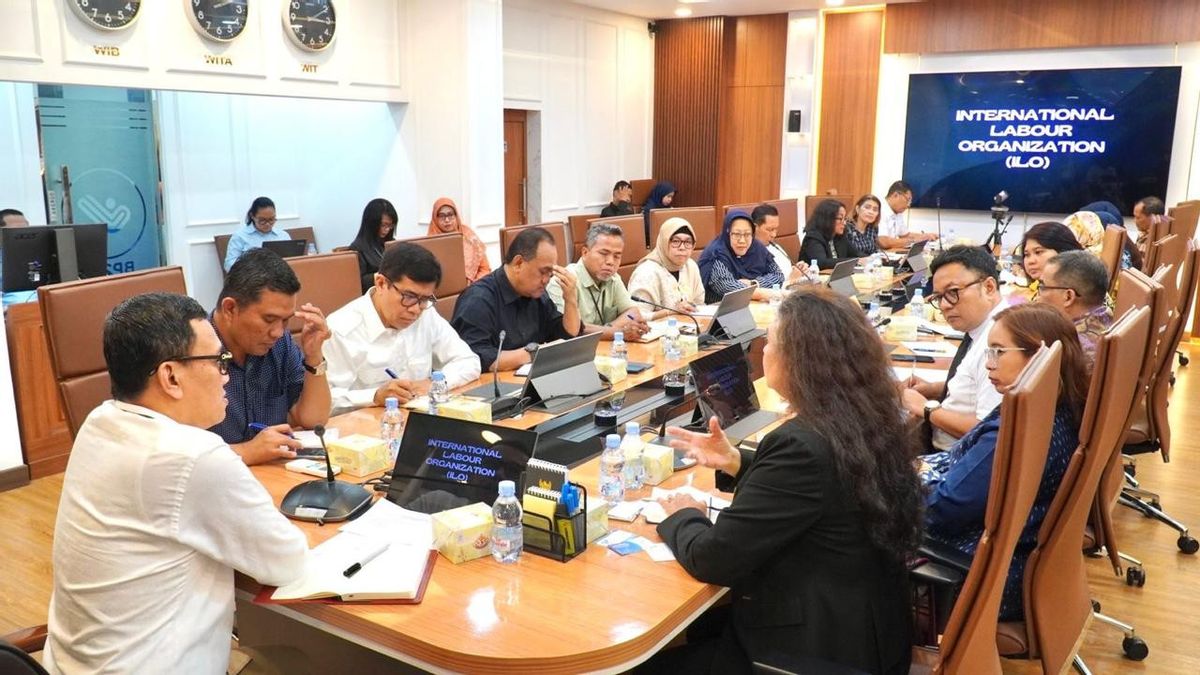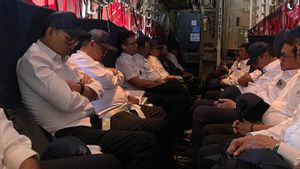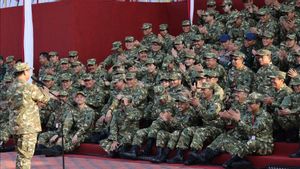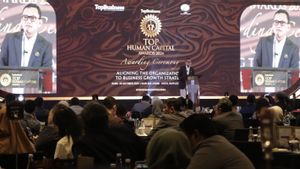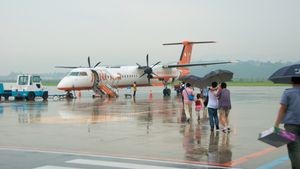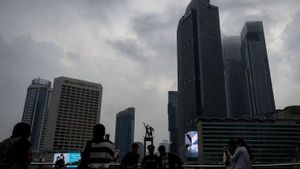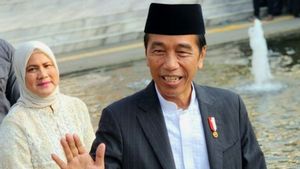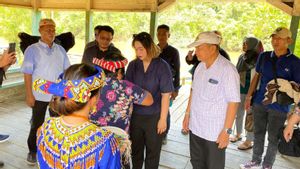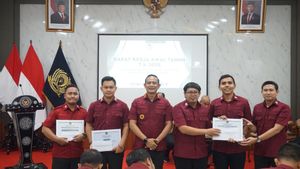JAKARTA - The Ministry of Protection of Indonesian Migrant Workers (P2MI)/Indonesian Migrant Workers Protection Agency (BP2MI) appreciates the commitment and contribution of the International Labor Organization (ILO) so far, especially in terms of the Protection of Indonesian Migrant Workers.
The appreciation was conveyed directly by the Minister of P2MI Abdul Kadir Karding when receiving a visit from the Director of ILO to Indonesia and Timor Leste, Simrin Singh, Thursday, October 31.
Karding said that President Prabowo mandated two things, which are derivatives of the President's vision and mission, namely Asta Cita.
First, minimize the Crime of Trafficking in Persons (TPPO) as much as possible. Second, asking to increase foreign exchange (remittance) by encouraging the delivery of Indonesian Migrant Workers, but humanely and avoiding the exploitation of Indonesian Migrant Workers.
"This is the work of our common home, so that proactively take action against the vulnerabilities that occur. We ask for help with collaboration," said Karding in an electronic message received in Jakarta, Friday, November 1.
In solving every problem and challenge related to the Protection of Migrant Workers, the government cannot do it alone. Therefore, it is necessary to collaborate with various parties.
"We appreciate ILO. We are of the view that to protect Indonesian Migrant Workers, we cannot run alone. Let's work together. We must work together with all parties, both with international institutions, existing in Asia, as well as institutions established by civil society," said Karding.
Since the beginning, Indonesia has been committed to increasing protection for Indonesian Migrant Workers and their families. This is reflected in Law Number 6 of 2012 concerning the Ratification of the Convention on the Protection of the Rights of All Migrant Workers and Family Members.
"Only then did the reform of the governance of the protection of Indonesian Migrant Workers continue to be pursued since the issuance of Law Number 18 of 2017 concerning the Protection of Indonesian Migrant Workers. This law mandates that the implementation of the protection of Indonesian Migrant Workers is based on equal rights, recognition of dignity and human rights, democracy, social justice, gender equality and justice, non-discrimination, and anti-trafficking of humans," he explained.
Director of ILO for Indonesia and Timor Leste, Simrin Singh responded positively to Minister Karding's statement and congratulated BP2MI on the transformation of the ministry.
"It is an honor for us to be able to meet with the Minister, especially since this institution has become a ministry that underlines the word 'protection' which is important for ILO. So far, ILO has collaborated a lot with governments and non-governments, including with trade union entrepreneurs and other groups. ILO also helps greatly improve the data collection capacity of migrant workers who are very important in sustainable work," said Singh.
Singh also revealed that ILO saw that Indonesia had made a lot of progress in protecting migrant workers, for example regarding the financing of placement borne by the government.
"Indonesia has become a pioneer in protecting migrant workers in Southeast Asia, so I think Indonesia can be an inspiration to other countries," said Director Singh.
The point, continued Singh, is that ILO also wants to work with the Indonesian government to ward off bad things that might happen to migrant workers.
The Minister of P2MI/Head of BP2MI also hopes that this meeting will be followed up in the form of cooperation, either in the field of regulation or capacity building by being directly involved in the vocation of Indonesian Migrant Workers.
SEE ALSO:
For the medium term, we will strengthen cooperation with placement countries by asking for the job order we will give to educational institutions to be prepared. Then for the long term, I hope there is cooperation with the Ministry of Education to provide lessons other than English at certain levels of education, for example in vocational schools, nurses. Because I think that if we place skilled Indonesian Migrant Workers who master the language, then 50 percent of protection problems can be solved first. We have to solve this main problem," said Karding.
The English, Chinese, Japanese, Arabic, and French versions are automatically generated by the AI. So there may still be inaccuracies in translating, please always see Indonesian as our main language. (system supported by DigitalSiber.id)
